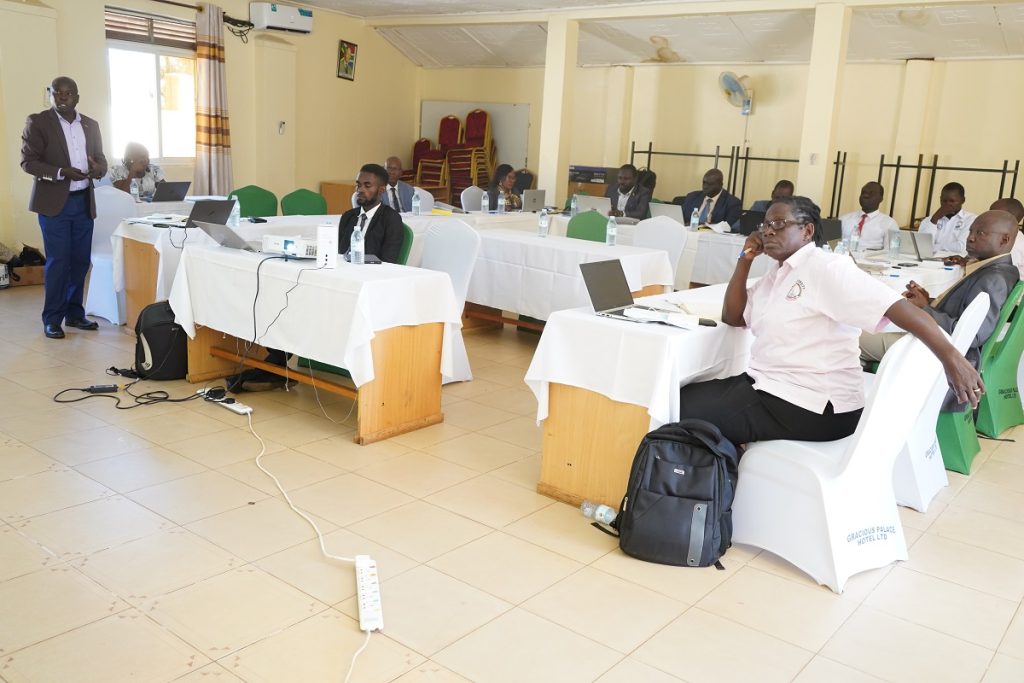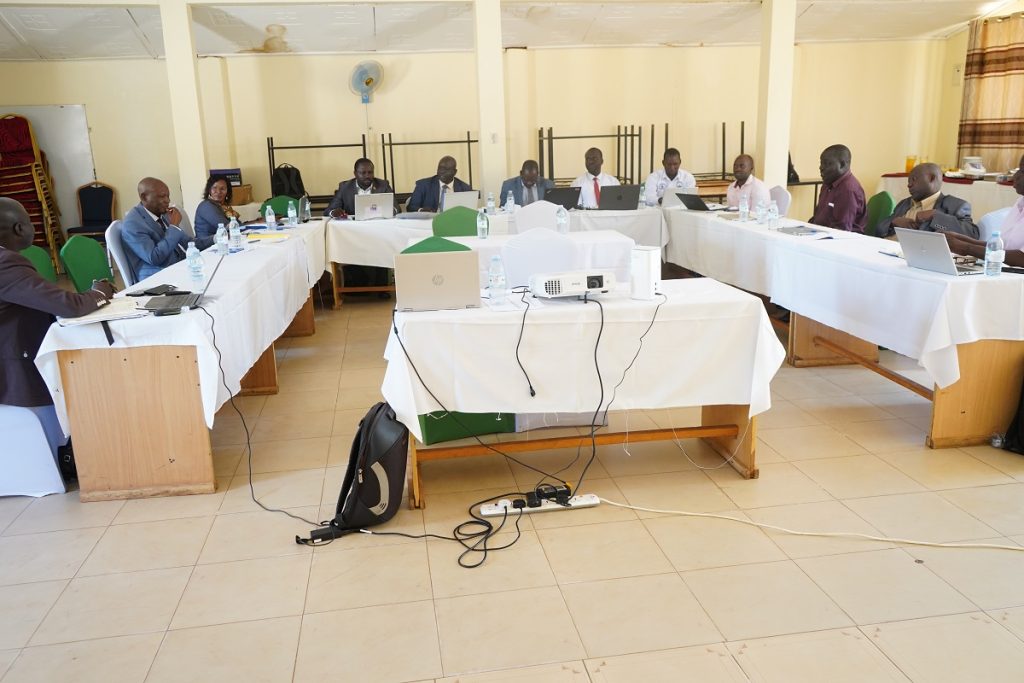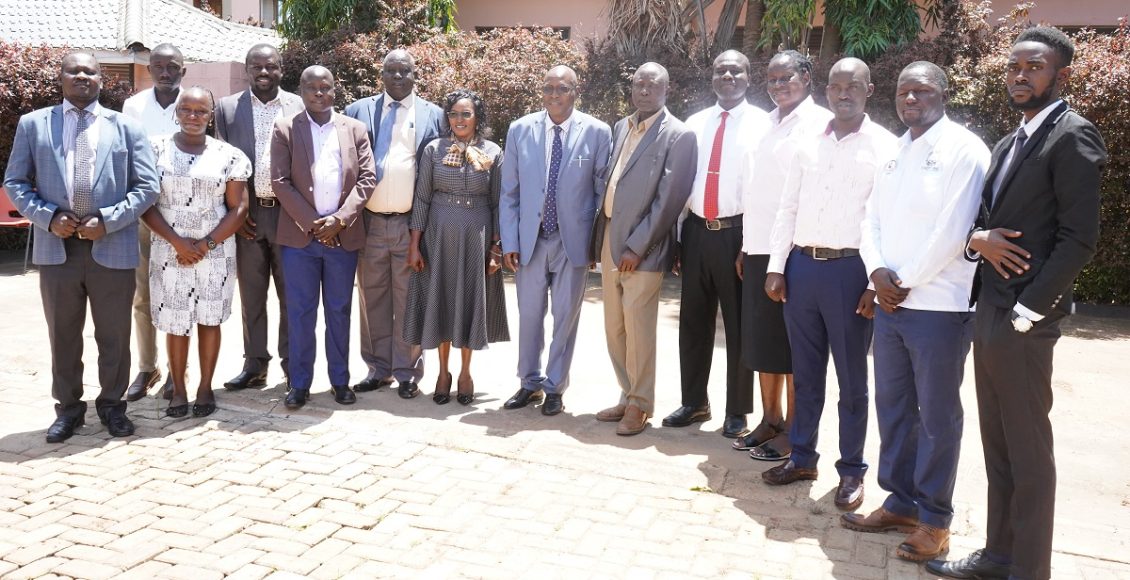“CAFFP-PAC Project is a game changer in adolescent youth health,” says Lira District Health boss
By Patrick Opio
Senior Communications Officer
The Assistant District Health Officer, Lira District, Mr. Edmond Acheka has revealed that the ‘Enhancing Integration of Adolescent Family Planning and Post-Abortion Care in Northern Uganda: A Citizen Science, Gender-Transformative Approach (CAFFP-PAC) Project has started yielding fruits and a game-changer in the health of the adolescents.
While presenting the Lira District/City progress performance report on CAFFP-PAC, 1st year, at the Project Technical Advisory Committee (PTAC) meeting on 10th October 2025, Mr. Acheka noted that a total of 6 Master Coaches were oriented, linked to scientists and peer educators.

Lira University Vice Chancellor Prof. Jasper Ogwal Okeng presided over the meet organised at Gracious Palace Hotel, Lira City. The Project Co-PIs and others attended the meeting.
Mr. Acheka noted that a total of twelve engagement meetings in six sampled health facilities from both Lira District and Lira City were conducted between the Master Coaches and 60 Citizen Scientists.
“Twelve mentorship and coaching visits were conducted in the 6 health facilities and midwives mentored,” he said, adding 92 adolescent girls (10-15 years) were provided with post abortion care services at the facilities.
The first phase of CAFFP-PAC ran from January to June 2025. The project, funded by the International Development Research Center (IDRC) will run for 3 years.
Presenting on behalf of the Principal Investigator, Dr. Maxson Anyolitho, a senior Lecturer and the Project Co-PI, said that all project activities planned for the year that ended were successfully accomplished with some few challenges faced. He added that the implementation of the activities earmarked for the current period running are already ongoing.
Prof. Ogwal Okeng lauded PTAC members for attending the meeting and ensuring effective implementation of the project activities. “I am happy with the Project Implementation Team and others. The University Team and their partners are doing wonders,” he said.
Prof. Ogwal Okeng noted that a representative from the Health Ministry at the Project Technical Advisory Committee (PTAC) is paramount so that the Ministry is constantly informed and made aware of the project activities. “We urgently need someone from the Ministry to be a stakeholder in the project implementation process,” Prof. Ogwal Okeng observed.
Assoc. Prof. Judith Abal Akello, the Gender Expert presented a paper on the Preventing and Responding to Sexual Exploitation, Abuse, and Harassment (PSEAH) during the project implementation.
Prof. Abal noted that IDRC expects all grantees and partners to adhere to the IDRC’s Preventing and Responding to Sexual Exploitation, Abuse and Harassment (PSEAH) Policy. “Sexual exploitation, abuse, or harassment (SEAH) is considered a serious breach of duty and gross misconduct,” she explained adding that its violations may result in immediate dismissal, loss of employment benefits, and possible legal action.
Prof. Abal said “Sexual exploitation and abuse are acts of gross misconduct and grounds for disciplinary measures. This sets a zero-tolerance standard for all involved to avoid withdrawal of funding/Termination of Contract.”

She added that sexual activity with children is prohibited regardless of local laws. “Engaging in sexual activity with anyone under the age of 18 is strictly prohibited, even where the local age of consent is lower.
“A mistaken belief about a child’s age is not a valid defense. This principle is designed to protect children from exploitation and harm,” Prof. Abal explains further. She adds, “Exchange of money, employment, goods, or services for sex is prohibited. Transactional sex is forbidden. This includes offering jobs, food, protection, or aid in exchange for sexual favors.”
Such actions, Prof. Abal observed, exploit power imbalances and are considered coercive, undermining the dignity and rights of beneficiaries.
Another issue that must be avoided is the sexual relationships with beneficiaries, strongly discouraged, even if seemingly consensual, these relationships involve an inherent power imbalance between aid workers and beneficiaries. Such relationships risk exploitation, favouritism, and reputational harm to humanitarian programs.
Prof. Abal noted that all humanitarian workers are responsible for reporting any concerns, allegations, or suspicions of SEAH committed by colleagues or partners. “Failure to report may be considered negligence or misconduct,” she warned.
She finally called the project implementers at all levels to maintain a safe environment, do risk assessment including key risks that include re-traumatization, emotional harm, stigmatization, coercion, misuse of power, legal/ethical issues, and cultural Mitigation.
Project Team
- Associate Prof. Dr. Bernard Omech (PI)
- Dr. Morris Chris Ongom (Co-PI)
- Mr. Edmonton Acheka (Co-PI)
- Dr. Murara Odette (Co-PI)
- Dr. Amir Kabunga (Co-I)
- Associate Prof Judith Akello Abal (Co.I)
- Dr Samson Udho (Co.I)
Partners
- ANeSA. IDRC, CRDI, APHRC
- Lira University management –PTAC and Project Implementation Committee members


Comments are closed.